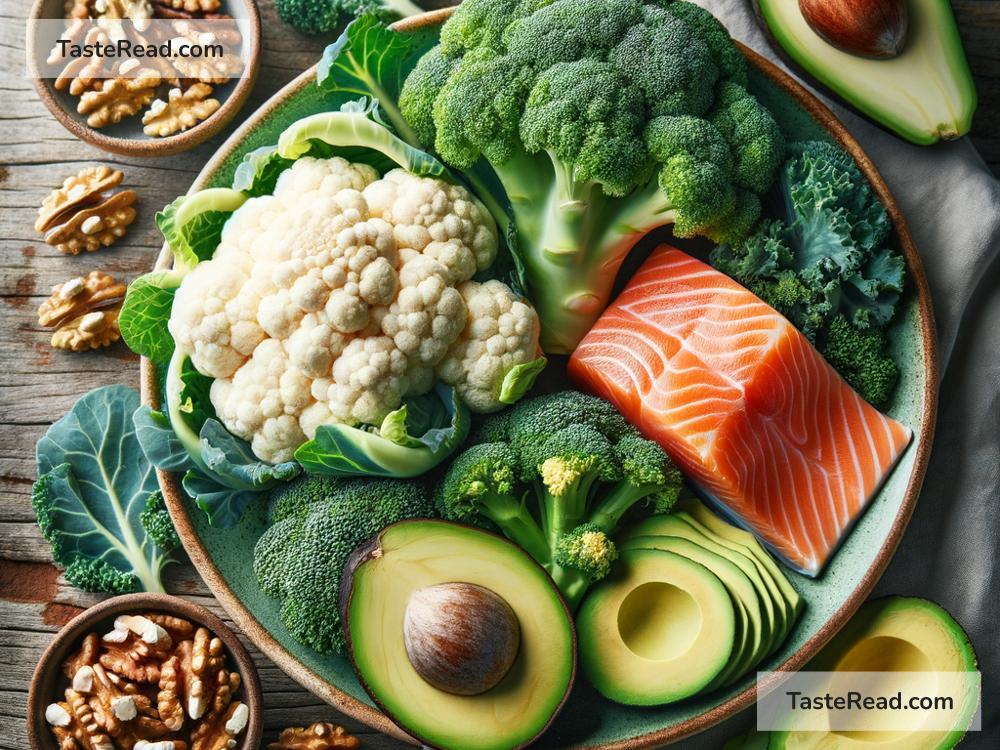Foods That Reduce the Risk of Hypothyroidism
Hypothyroidism is a condition where your thyroid gland doesn’t produce enough hormones to regulate your body’s metabolism. While medication is often necessary for treatment, diet plays a crucial role in maintaining thyroid health and may help reduce the risk of developing hypothyroidism in the first place. The foods you eat can support your thyroid and improve the overall production of hormones. Let’s take a look at what foods you should focus on to help lower your risk of hypothyroidism.
What Is Hypothyroidism?
Your thyroid gland is a small, butterfly-shaped gland located in your neck. It produces hormones that regulate many essential bodily functions, including metabolism, energy levels, heart rate, and more. Hypothyroidism occurs when your thyroid is underactive and produces insufficient amounts of thyroid hormones. Symptoms may include fatigue, weight gain, feeling cold, hair thinning, mood swings, and constipation.
While hypothyroidism is often caused by autoimmune disorders (such as Hashimoto’s thyroiditis), iodine deficiency, or even certain medications, your diet can be a powerful tool for keeping your thyroid healthy.
Foods That Support Thyroid Health
Here are some of the best foods to eat to reduce the risk of hypothyroidism. Each of these contains key nutrients that support thyroid function:
1. Iodine-Rich Foods
Iodine is a critical mineral for thyroid hormone production. Without enough iodine, your thyroid may struggle to function properly. Eating iodine-rich foods can help ensure your thyroid has what it needs to stay healthy.
- Sources of iodine: Seaweed (such as nori, wakame, and kelp), fish, shellfish, dairy products, and fortified iodized salt.
Caution: While iodine is important, avoid excessive consumption, as too much iodine can also harm thyroid function. Moderation is key.
2. Selenium-Rich Foods
Selenium is a trace mineral that helps protect your thyroid gland from damage and supports hormone production. Selenium also aids in converting thyroid hormones into their active forms, which your body needs to function correctly.
- Sources of selenium: Brazil nuts (a rich source; consume only a few per day for healthy levels), sunflower seeds, eggs, tuna, sardines, and turkey.
By eating a balanced amount of selenium-rich foods, you can help protect your thyroid from oxidative stress.
3. Zinc-Rich Foods
Zinc is another important mineral for thyroid function. Zinc helps support the production and regulation of thyroid hormones, which are needed for various processes in the body.
- Sources of zinc: Chicken, beef, oysters, shellfish, pumpkin seeds, chickpeas, and whole grains.
Including zinc in your diet not only promotes thyroid health but also supports your immune system.
4. Vitamin D-Rich Foods
Research shows that low levels of vitamin D may be linked to autoimmune thyroid diseases, such as Hashimoto’s thyroiditis. Hypothyroidism caused by autoimmune disorders may benefit from vitamin D, which helps regulate immune system function.
- Sources of vitamin D: Fatty fish like salmon, mackerel, and tuna; egg yolks; fortified foods (such as milk, orange juice, and cereals); and sunlight exposure.
Getting enough vitamin D can improve thyroid function and overall health.
5. Antioxidant-Rich Fruits and Vegetables
Antioxidants help fight inflammation and oxidative stress in the thyroid gland. These fruits and vegetables are rich in vitamins like A, C, and E that protect your thyroid from damage and boost immunity.
- Sources of antioxidants: Berries (blueberries, strawberries, blackberries), leafy greens (spinach, kale), carrots, sweet potatoes, peppers, oranges, lemons, and tomatoes.
Adding colorful fruits and veggies to your diet can reduce inflammation and keep your thyroid healthy.
6. Whole Grains
Whole grains are packed with fiber, which helps support regular digestion — something people with hypothyroidism often struggle with. Eating whole grains like oatmeal or quinoa can improve gut health and reduce constipation.
- Sources of whole grains: Brown rice, oatmeal, quinoa, whole wheat bread, and barley.
Make sure to drink plenty of water alongside whole grains to improve their effectiveness.
7. Healthy Fats
Healthy fats are essential for hormone production, including thyroid hormones. They also help reduce inflammation in the body, which can impact thyroid health.
- Sources of healthy fats: Avocados, nuts, seeds, olive oil, and fatty fish like salmon and mackerel.
By including these fats in your diet, you’ll give your thyroid the support it needs to function smoothly.
Foods to Limit or Avoid
While several foods support thyroid health, some foods can interfere with its function when consumed excessively. These include:
- Soy-based products: Soy can disrupt thyroid hormone production in large amounts.
- Cruciferous vegetables: Broccoli, cauliflower, and cabbage can interfere with iodine absorption if eaten in excess (especially raw).
- Processed foods: High-sugar and high-fat processed foods can lead to inflammation and weight gain, which negatively impact the thyroid.
Moderation and balance are key when consuming these foods.
Final Thoughts
A healthy diet rich in thyroid-supporting nutrients, such as iodine, selenium, and antioxidants, can go a long way in reducing the risk of hypothyroidism. By incorporating foods like fish, seaweed, nuts, whole grains, and leafy greens into your daily meals, you’ll be giving your thyroid the fuel it needs to stay healthy and active.
Remember, while food can play a significant role, always consult with a healthcare professional if you suspect thyroid issues. Together with a doctor’s advice and a nutrient-rich diet, you can take charge of your thyroid health and live a more energetic life.
What you eat matters, so start making smart choices today to protect your thyroid!


